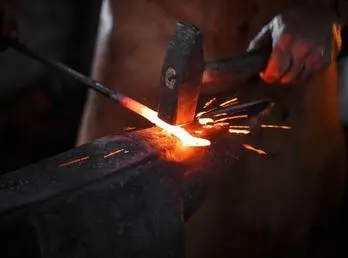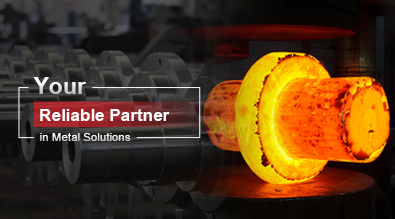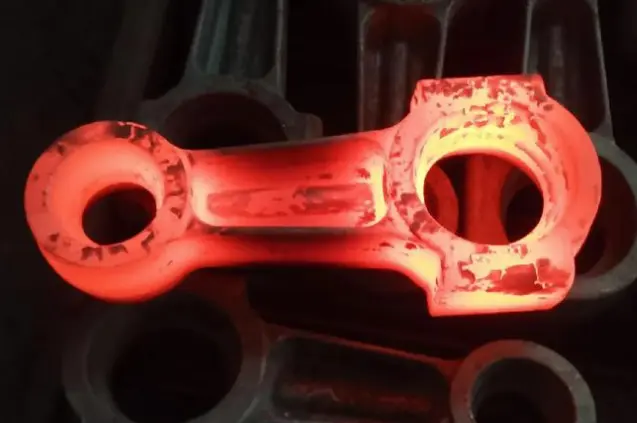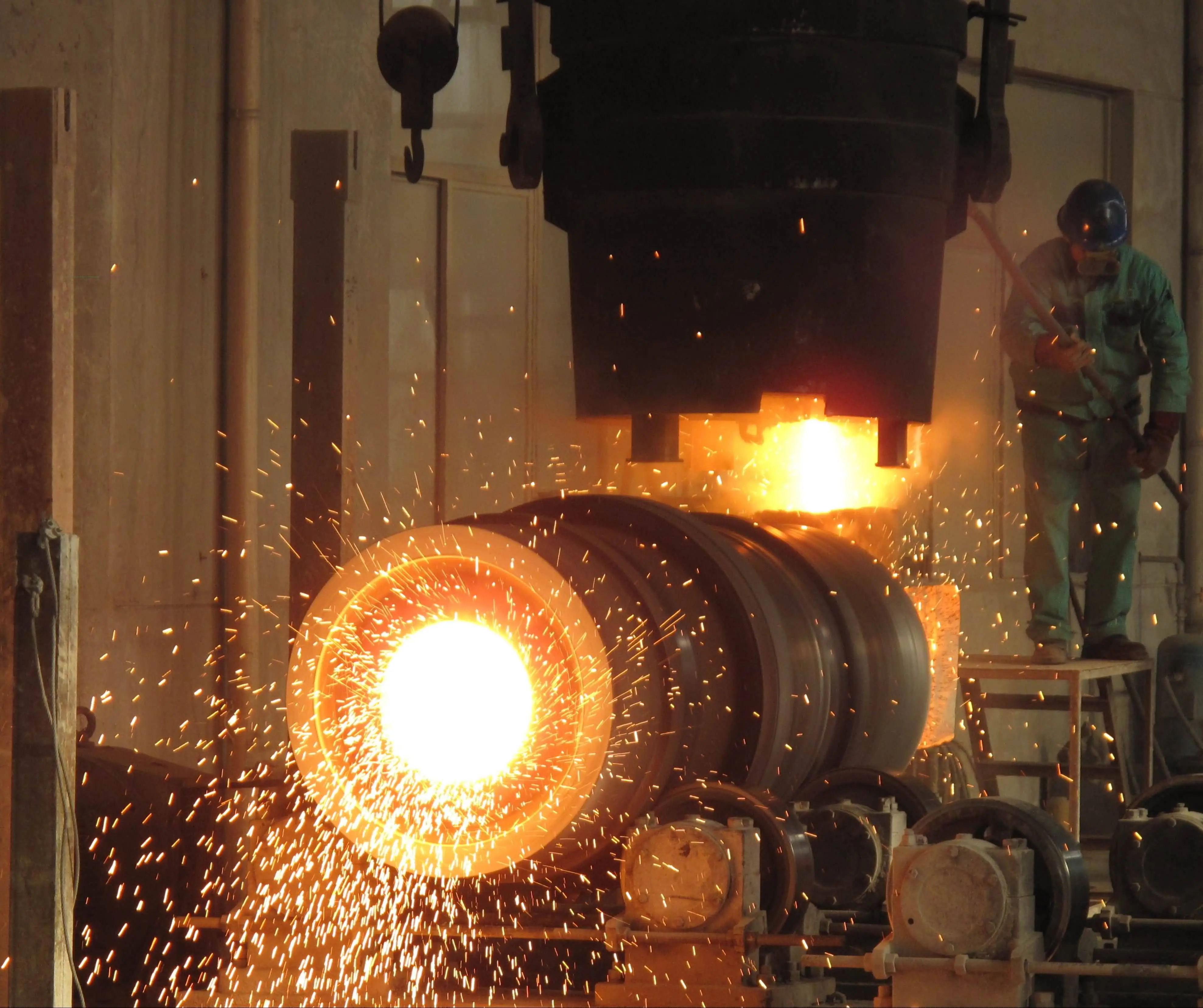Custom Forged Steel Components: A Guide for Industrial Buyers
In the world of industrial manufacturing, custom forged steel components play a crucial role in ensuring the strength, durability, and reliability of various machinery and equipment. As an industrial buyer, understanding the intricacies of these components is essential for making informed purchasing decisions. This comprehensive guide aims to provide valuable insights into the world of custom forged steel components, covering key specifications, the impact of the forging process on performance, and strategies for finding reliable suppliers. By delving into these aspects, we'll equip you with the knowledge necessary to navigate the complex landscape of industrial procurement, ensuring that you select the most suitable forged steel components for your specific applications. Whether you're in the automotive, aerospace, or heavy machinery industry, this guide will serve as a valuable resource in your quest for high-quality, custom-engineered steel parts.

Key Specifications to Consider When Ordering Forged Steel Parts
Material Composition and Grade
When ordering custom forged steel components, one of the most critical specifications to consider is the material composition and grade. The chemical makeup of the steel directly influences its mechanical properties, corrosion resistance, and overall performance. Forged steel components can be manufactured from various grades of carbon steel, alloy steel, or stainless steel, each offering unique characteristics. For instance, carbon steel forgings are known for their excellent strength-to-weight ratio and affordability, making them suitable for a wide range of applications. Alloy steel forgings, on the other hand, incorporate additional elements like chromium, nickel, or molybdenum to enhance specific properties such as heat resistance or toughness. Stainless steel forgings offer superior corrosion resistance, making them ideal for components exposed to harsh environments. When specifying the material for your forged steel components, it's crucial to consider factors such as operating temperature, exposure to corrosive substances, and required mechanical properties to ensure optimal performance in your specific application.
Dimensional Tolerances and Surface Finish
Another crucial aspect to consider when ordering custom forged steel components is the dimensional tolerances and surface finish. The forging process allows for tighter tolerances compared to other manufacturing methods, resulting in components with superior dimensional accuracy. However, it's essential to specify the required tolerances for critical dimensions to ensure proper fit and function within your assembly. Tighter tolerances may increase costs but can be necessary for certain applications where precision is paramount. Additionally, the surface finish of forged steel components can significantly impact their performance and appearance. Different levels of surface finish can be achieved through various post-forging processes such as grinding, polishing, or shot blasting. The required surface finish should be specified based on factors like wear resistance, corrosion protection, or aesthetic considerations. By clearly defining the dimensional tolerances and surface finish requirements for your forged steel components, you can ensure that the final product meets your exact specifications and performs optimally in its intended application.
Heat Treatment and Mechanical Properties
Heat treatment is a crucial process that significantly influences the mechanical properties of forged steel components. Various heat treatment methods, such as quenching, tempering, normalizing, or annealing, can be applied to achieve specific strength, hardness, and toughness characteristics. When ordering custom forged steel components, it's essential to specify the required mechanical properties and the appropriate heat treatment process to achieve them. For example, quenching and tempering can significantly increase the strength and hardness of the component, making it suitable for high-stress applications. Normalizing can improve the uniformity of the microstructure, enhancing the overall stability of the part. Annealing can increase ductility and machinability, which may be beneficial for components that require further processing. Additionally, consider specifying mechanical property requirements such as yield strength, tensile strength, elongation, and impact resistance. These properties directly influence the performance and durability of the forged steel components in their intended applications. By carefully considering and specifying the heat treatment and mechanical properties, you can ensure that your custom forged steel components meet the exact performance requirements of your industrial application.
How Does the Forging Process Affect Steel Component Performance?
Grain Structure and Material Flow
The forging process has a profound impact on the performance of steel components, primarily through its influence on the material's grain structure and flow. During forging, the steel is subjected to intense pressure and heat, causing the metal grains to deform and align in the direction of material flow. This alignment results in a more refined and uniform grain structure compared to other manufacturing methods like casting or machining. The improved grain structure of forged steel components leads to enhanced strength, toughness, and fatigue resistance. The continuous and aligned grain flow follows the contours of the part, providing superior strength in areas that experience the highest stress during operation. This characteristic makes forged steel components particularly suitable for applications involving dynamic loads or cyclic stress. Furthermore, the refined grain structure achieved through forging contributes to improved ductility and impact resistance, allowing the components to better withstand sudden loads or impacts without failure. When ordering custom forged steel components, it's essential to consider how the forging process can be optimized to achieve the desired grain structure and material flow, ultimately enhancing the performance and longevity of the final product.
Density and Porosity Reduction
Another significant way in which the forging process affects steel component performance is through the reduction of density variations and porosity. Unlike casting processes, which can result in internal voids or porosity due to gas entrapment or shrinkage during solidification, forging produces components with near-perfect density throughout. The intense pressure applied during forging eliminates any existing voids or porosity in the starting material and prevents the formation of new ones. This results in forged steel components with superior structural integrity and consistency. The uniform density achieved through forging contributes to improved mechanical properties, such as higher strength and better fatigue resistance. It also enhances the component's ability to withstand high-pressure environments without the risk of internal defects leading to failure. Additionally, the reduced porosity in forged steel components improves their corrosion resistance by eliminating potential sites for corrosive agents to penetrate and initiate degradation. When specifying custom forged steel components for critical applications, the improved density and reduced porosity achieved through forging can be a significant factor in ensuring long-term reliability and performance under demanding conditions.
Work Hardening and Strengthening
The forging process significantly contributes to the performance of steel components through work hardening and strengthening mechanisms. As the steel is deformed during forging, dislocations within the crystal structure of the material multiply and interact, leading to an increase in strength and hardness. This phenomenon, known as work hardening or strain hardening, results in forged steel components with superior mechanical properties compared to those produced by other manufacturing methods. The degree of work hardening can be controlled by adjusting forging parameters such as temperature, strain rate, and deformation extent, allowing for customization of the final component's properties. Furthermore, the forging process can induce beneficial residual stresses within the component, which can enhance its fatigue resistance and overall durability. The combination of work hardening and induced residual stresses makes forged steel components particularly well-suited for applications involving high cyclic loads or impact resistance. When ordering custom forged steel components, it's important to consider how the forging process can be optimized to achieve the desired level of work hardening and strengthening, tailoring the component's performance to meet specific application requirements.
Finding Reliable Suppliers for Custom Forged Steel Components
Evaluating Technical Capabilities and Experience
When seeking reliable suppliers for custom forged steel components, one of the most critical factors to consider is their technical capabilities and experience. A supplier's ability to produce high-quality forged steel components consistently depends on their expertise in various forging techniques, heat treatment processes, and material science. Evaluate potential suppliers based on their range of forging equipment, such as hydraulic presses, mechanical presses, or hammer forges, as well as their capacity to handle different steel grades and component sizes. Additionally, consider their in-house capabilities for secondary operations like heat treatment, machining, and surface finishing, as these can significantly impact the quality and cost-effectiveness of the final product. Experience in your specific industry or application is also crucial, as it demonstrates the supplier's understanding of unique requirements and challenges. Look for suppliers with a proven track record of producing similar forged steel components and ask for case studies or references from past projects. A supplier with extensive technical capabilities and relevant experience is more likely to deliver custom forged steel components that meet your exact specifications and performance requirements, ensuring the success of your industrial applications.
Quality Control Measures and Certifications
When searching for reliable suppliers of custom forged steel components, it's crucial to assess their quality control measures and relevant certifications. A reputable supplier should have robust quality management systems in place to ensure consistent production of high-quality forged steel components. Look for suppliers who employ advanced inspection techniques such as non-destructive testing (NDT) methods like ultrasonic testing, magnetic particle inspection, or dye penetrant testing to detect any internal or surface defects in the forged components. Additionally, evaluate their metrology capabilities for dimensional verification and their protocols for material traceability throughout the production process. Certifications play a significant role in demonstrating a supplier's commitment to quality and industry standards. ISO 9001 certification is a fundamental requirement, indicating that the supplier adheres to internationally recognized quality management principles. Industry-specific certifications, such as AS9100 for aerospace or API specifications for oil and gas applications, can provide further assurance of a supplier's expertise in producing forged steel components for specialized sectors. Furthermore, inquire about the supplier's internal quality control documentation, such as material test reports, inspection records, and process control charts, to ensure transparency and accountability in their manufacturing processes.
Supply Chain Reliability and Customer Service
When selecting suppliers for custom forged steel components, it's essential to consider their supply chain reliability and customer service capabilities. A dependable supplier should have a robust supply chain management system in place to ensure timely delivery of raw materials and consistent production output. Evaluate potential suppliers based on their track record of meeting delivery deadlines, their ability to handle fluctuations in demand, and their strategies for mitigating supply chain disruptions. Additionally, consider their inventory management practices and whether they offer just-in-time delivery options to align with your production schedules. Customer service is another critical aspect of a reliable supplier relationship. Look for suppliers who demonstrate a commitment to clear communication, responsiveness to inquiries, and willingness to collaborate on problem-solving. A supplier with excellent customer service will be proactive in addressing any issues that may arise during the production or delivery of forged steel components, minimizing downtime and potential disruptions to your operations. Furthermore, assess the supplier's technical support capabilities, including their ability to provide engineering assistance, design optimization suggestions, and aftermarket support for the forged steel components they produce. By prioritizing supply chain reliability and customer service when selecting suppliers, you can ensure a smooth and efficient procurement process for your custom forged steel components, ultimately contributing to the success of your industrial projects.
Conclusion
Custom forged steel components are integral to numerous industrial applications, offering superior strength, durability, and performance. By considering key specifications, understanding the impact of the forging process, and carefully selecting reliable suppliers, industrial buyers can ensure they procure high-quality components that meet their exact requirements. As the manufacturing landscape continues to evolve, staying informed about advancements in forging technologies and materials will be crucial for making optimal purchasing decisions. By leveraging the insights provided in this guide, industrial buyers can navigate the complexities of sourcing custom forged steel components with confidence, ultimately contributing to the success and efficiency of their operations.
For those seeking a reliable partner in custom forged steel components, Shaanxi Welong Int'l Supply Chain Mgt Co.,Ltd. offers a wealth of experience and expertise. Founded in 2001 and certified by ISO 9001:2015 and API-7-1 quality systems, Welong specializes in developing and supplying customized metal parts for various industries. With capabilities in forging, casting, and machining, Welong can meet diverse material requirements and product specifications. Their commitment to quality control, timely delivery, and customer satisfaction has earned them a global customer base spanning over 100 clients across Europe, North America, and Asia. For more information or inquiries, please contact them at info@welongpost.com.
References
1. Smith, J. D. (2018). Advanced Forging Techniques for Custom Steel Components. Journal of Materials Engineering and Performance, 27(5), 2345-2360.
2. Johnson, R. A., & Thompson, L. K. (2019). Quality Control in Forged Steel Component Manufacturing: A Comprehensive Guide. Industrial Quality Management, 42(3), 178-195.
3. Brown, M. E. (2020). The Impact of Forging Processes on Steel Microstructure and Properties. Materials Science and Engineering: A, 775, 138945.
4. Davis, C. L., & Wilson, A. J. (2017). Supplier Selection Criteria for Custom Forged Components in the Aerospace Industry. International Journal of Supply Chain Management, 6(2), 45-62.
5. Lee, S. H., & Park, K. T. (2021). Advancements in Heat Treatment Techniques for High-Performance Forged Steel Parts. Heat Treatment and Surface Engineering, 3(1), 1-15.
6. Anderson, P. R., & Miller, G. S. (2016). Economic Considerations in Custom Forged Steel Component Procurement. Journal of Industrial Economics, 64(4), 721-738.

Share your inquiry, get the quotation accordingly!

China WELONG- Your Reliable Partner in Metal Solutions

